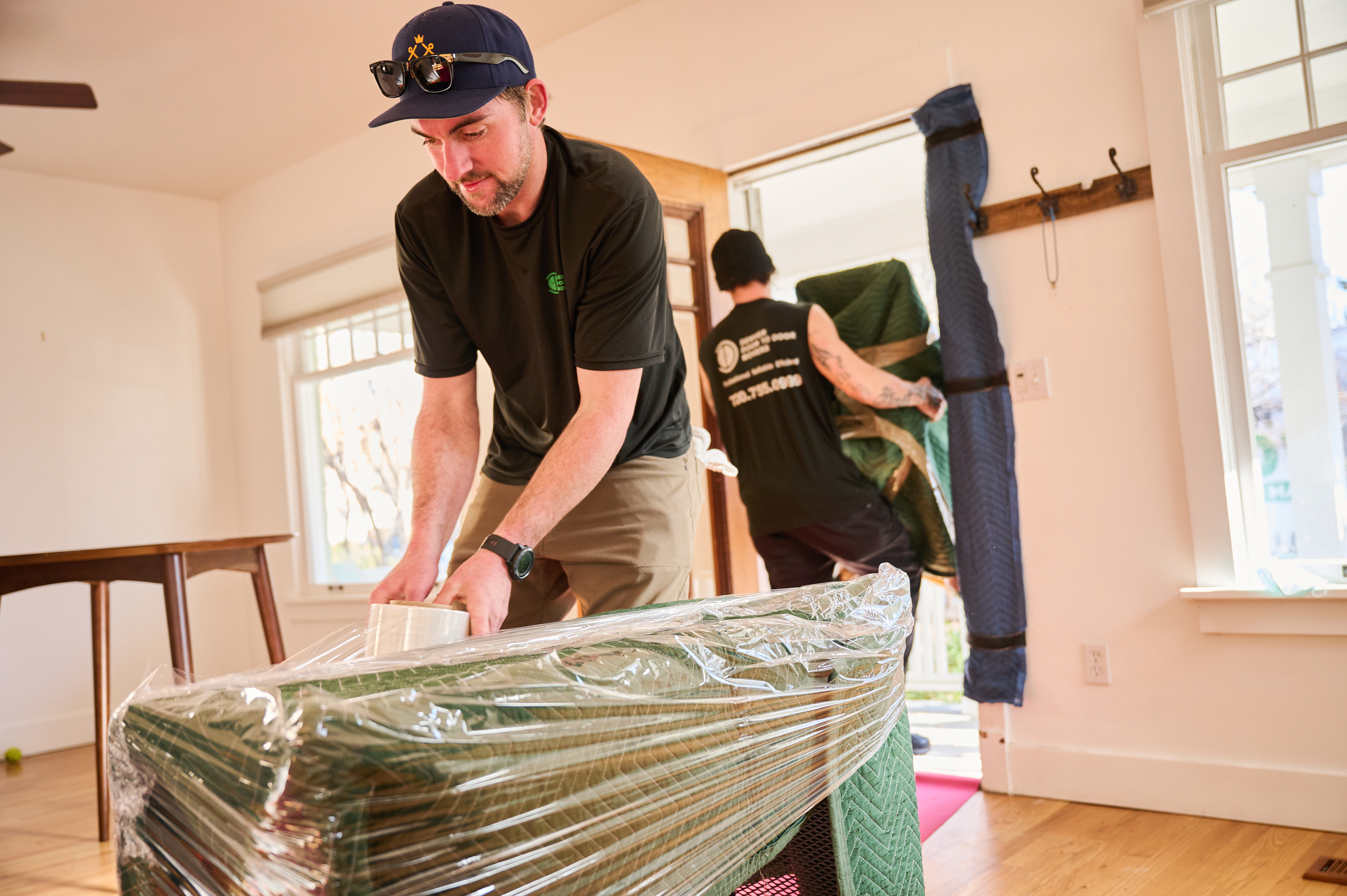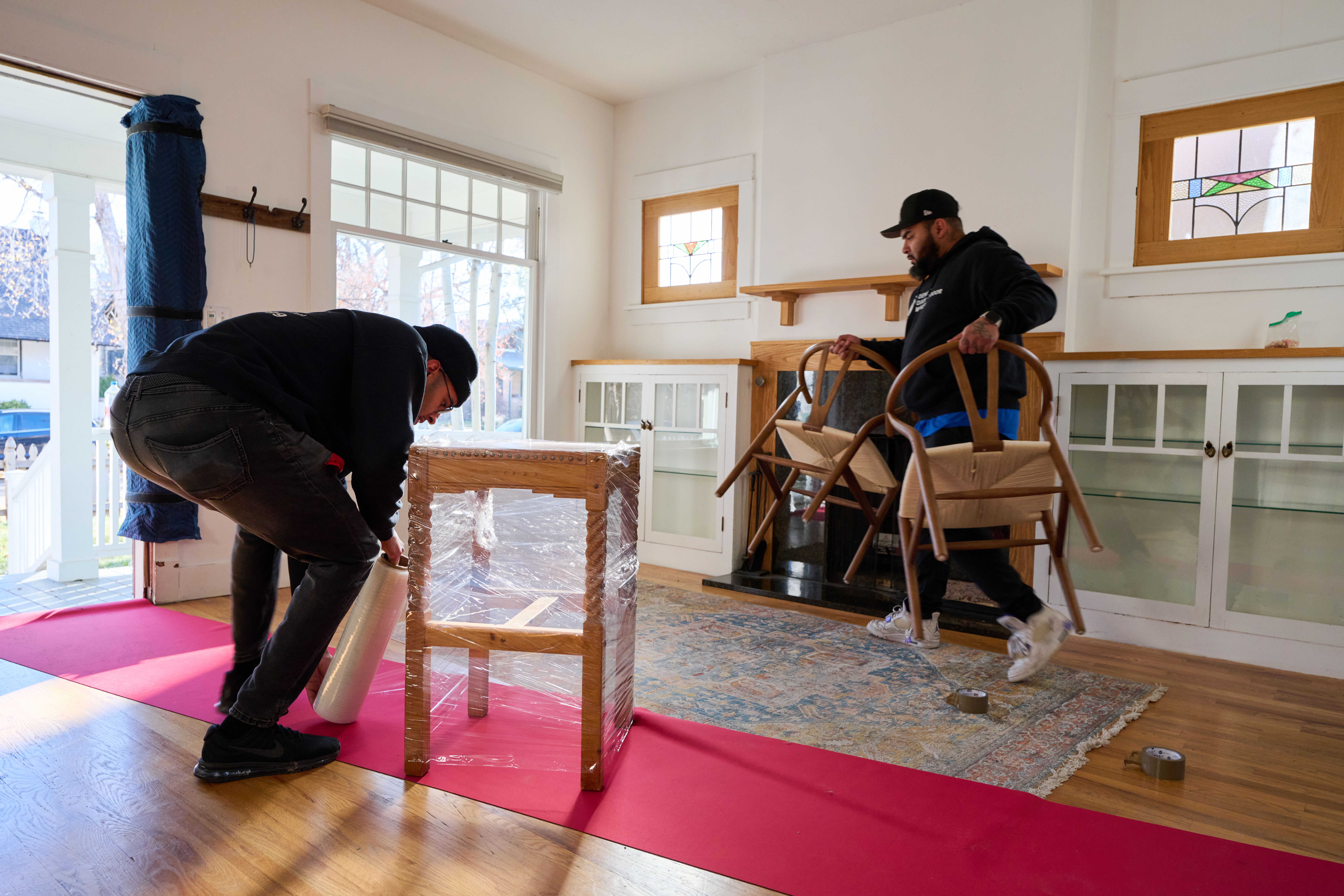
It’s easy to determine your shipping furniture cost. Learn how to measure your pieces and choose a shipper that works with your budget.
Some things should never be put on a moving truck


Don’t pack poisonous, flammable chemicals when moving because they can leak and possibly even explode.
Carry irreplaceable items like family photos with you instead of packing them in the moving vehicle.
Bugs and mice are attracted to packed pantry items like cereal, so avoid packing food.
Knowing what items to pack for move is part art and part science, but what about what not to pack when moving? It’s essential to research your moving company’s guidelines for what they will and won’t move and state laws. Use these tips to figure out what not to pack when moving.
The garage is one of the most common spots to store more dangerous chemicals that are not travel friendly. Consult your local movers about which chemicals are allowed to travel in a moving truck. Some supplies are corrosive and can damage other materials if they spill in a moving truck. Other chemicals can permanently stain or disfigure surfaces, and some react poorly to sudden environmental changes that happen during a longer move, potentially bursting open, catching fire, or releasing hazardous fumes.
So, while you pack up your garage, set aside these supplies for proper disposal instead of throwing them in a box:
Fuel, especially gasoline and kerosene
Lighter fluid and other grilling accelerants
Motor oil
Lubricants and oils
Paints, stains, varnishes, and similar canned coatings
Paint thinners and all similar solvents
Canned heating sources and similar heating supplies
Any tank with compressed gas in a pressurized state can be dangerous to move. While these tanks are sturdy, they can react poorly to extreme temperatures, impacts from accidents, and other hazards they may face when moving. Set aside the following items:
Propane tanks
Oxygen tanks
Fire extinguishers
Aerosol cans of spray paint or coating
Aerosol sprays like WD-40
Pools and spas require powerful chemical cocktails to keep them clean and safe for people to use. Unfortunately, essential pool chemicals can be highly toxic and can easily contaminate their surroundings during an accident. That can include:
Chlorine
Bromine
Biguanide
“Pool shock” formulas
If you have any chemicals (liquid or dry) that you use for cleaning, sanitizing, and maintaining pH balances for your pool, spa, hot tub, or pond, dispose of them properly before you move.
Some common home cleaners can present dangers when moving, especially if they spill, heat up, or combine accidentally. Be wary of any “all-natural” cleaners, as they often contain strong chemicals, so it’s best to pour them out or regift them before moving. It’s better to toss your harsh cleaners rather than packing them, especially if they contain:
Bleach
Ammonia
Alcohol
Solvent formulas
Detergents
Stain removers
Floor cleaners
Bathroom cleaners
Remember, you should not pack certain beauty items that contain high concentrations of alcohol because they can be flammable. Exposure to prolonged heat can cause these products to explode and/or catch fire. Here is what not to pack when moving when it comes to beauty products:
Hairsprays
Nail polish
Nail polish remover
Aerosol deodorants
Perfume and cologne
Makeup setting spray
Always check the labels of gardening chemicals and products to see if it’s something you should not pack when moving. Here are some items you need to dispose of or donate to a fellow gardener before you move cross country:
Gardening chemicals
Fertilizer
Insecticides and pesticides
Herbicides such as weed killers
Spare bags of pebbles, soil, or gravel (not toxic, but very heavy and not usually worth moving)
Hey, we’re all for saving money (it's expensive to re-buy a complete collection of spices and herbs) and reusing what you can, but transporting perishables is tricky. For quick local moves across town, a cooler with cold packing and insulation gets frozen foods, meats, eggs, dairy products, fruits, and vegetables safely to your new house.
But before a long-distance move, it is best to set up a day for friends and family to come over and take what they can use. Or, if you’re a creative cook, host a super casual leftover dinner for anyone you’d like to say goodbye to one last time.
Don’t try to pack anything fresh in your moving truck, even if it's only for a day or two and sealed in containers. You’d be surprised how fast pests like bugs and mice can find your favorite cereal and quinoa.

It should go without saying, but for their safety, pets of any kind cannot ride in a moving truck. Instead, they should ride in the car in a crate or using an animal seatbelt. Or, for long distance and overseas moves, check out pet transportation companies endorsed by the International Pet and Animal Transportation Association.
For some plant parents, caring for indoor plants carries the same emotional weight as caring for pets. If they’re packed securely, and possibly removed from breakable pots, indoor and outdoor plants are easily moved across town. But, if you have a cross-country move, it all depends on your car space. Depending on the plants’ size, you might have to rehome your beloveds.
If you have visions of your family’s heirloom wedding dress heading down the aisle one more time, leave it off the moving truck. Even with the best care, accidents can happen, which can leave you without your most precious items or the ones that are hardest to replace. Plus, no one wants to go to the DMV for a new ID. It’s best to find somewhere to pack these items with you:
Moving paperwork, especially the bill of lading
Car titles
Checks and cash
Financial documents: tax, insurance, housing
Passports, birth certificates, marriage license
Wills
Medical records
School records
Jewelry
Laptops
Cellphones
Collectibles, antiques
Family photos, home movies
Copies of keys for cars, safe deposit boxes
Medication
If you have a specialty item such as a piano, consider hiring a moving company near you to assist with relocating it.
Although exciting and possibly life-changing, moving is time-consuming and expensive. One of the best ways to ease your burden is to rid yourself of anything that isn’t move-worthy. If it's time to donate your sofa, let it go.
If you’re holding onto clutter from years ago, don’t pack it. If you bought a serveware set for entertaining and it never made it out of the box, sell it and recoup some of your moving expenses. The lighter the move, the better you’ll feel at the end of your relocation.
Your home may have materials that are too combustible to be pack into a moving truck (where conditions can get very hot and accidents may happen). It’s best to safely dispose of these supplies and replace them in your new home. In some cases, you may want to safely transport these items along with personal, by-your-side goods instead. These combustible goods should never go in the back of a moving truck, including common household supplies such as:
Matches
Fireworks
Coal
Live ammunition
Lamp oil
Batteries
Flares
Chemical heating pads
Space heaters with fuel
There are also miscellaneous fragile items in your home that you shouldn’t transport in your moving vehicle. These dangerous bulbs could break in transport and cause serious issues. That includes:
Fluorescent tubes, which use mercury vapor
Compact fluorescent lights (CFLs)
This category covers supplies used in your previous home that your new home doesn’t need. You should find safe ways to dispose of them or give them to others who could use them. Avoid packing:
Replaceable AC filters that only fit your old home’s system
Light bulbs that won’t fit your new fixtures
Bedding that’s a poor fit for new bedrooms
Window treatments made for old home window shapes
Rugs that won’t fit in new spaces
It’s best to pack things that are in storage and non-essential items first. Start by packing up items you are taking from your storage unit, garage or shed, basement, and attic. You should wait to pack essential items such as toiletries and medications last.
In most cases, the kitchen is the most difficult room to pack because there are so many fragile items that can be damaged if not packed properly. Plus, if you are taking heavy appliances with you, it can make it more of a challenge. Set aside plenty of time to pack kitchenwares and other breakables carefully.
Products that are hazardous, such as aerosol sprays, top the list of what to leave behind during a move. Avoid packing perishables, garden and garage chemicals, pool supplies, compressed gases, and combustible items. If you are trying to move by yourself, you may want to downsize so you have fewer belongings to pack and move (and then unpack).
Pouring chemicals down the sink or toilet is a bad idea. In large amounts, they can damage plumbing and septic system. Tossing them in the trash can cause leaks, harmful fumes, and other problems, too.
Pouring chemicals onto the ground or nearby storm drains is also not recommended. Toxic chemicals can leak into nearby plants, lawns, or even water sources. It’s also illegal to pour out certain substances like used motor oil. Instead, schedule a trip to a local dropoff site for household hazardous wastes. Most local government websites can give you information on where to dispose of these substances.
From average costs to expert advice, get all the answers you need to get your job done.

It’s easy to determine your shipping furniture cost. Learn how to measure your pieces and choose a shipper that works with your budget.

How much do movers cost? The answer varies based on a lot of factors, but we’ve laid them all out for you here. Plan your budget with our cost guide.

The cost to move a shed depends on size, the distance of your move, and more. Considering if you should hire pros or DIY? This guide can help you decide.
Some days work better than others when it comes to moving to a new home. Consider these factors when planning your moving date.

Moving abroad can broaden your horizons and show you a new way of life. This guide teaches you what you can expect to pay in international moving costs.

Not sure whether to ask your friends to help with your big move? In this guide, we review the best practices for enlisting friends for moving help.